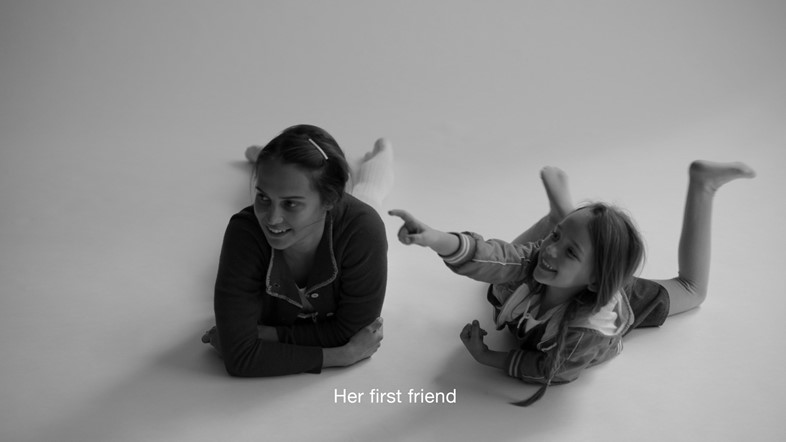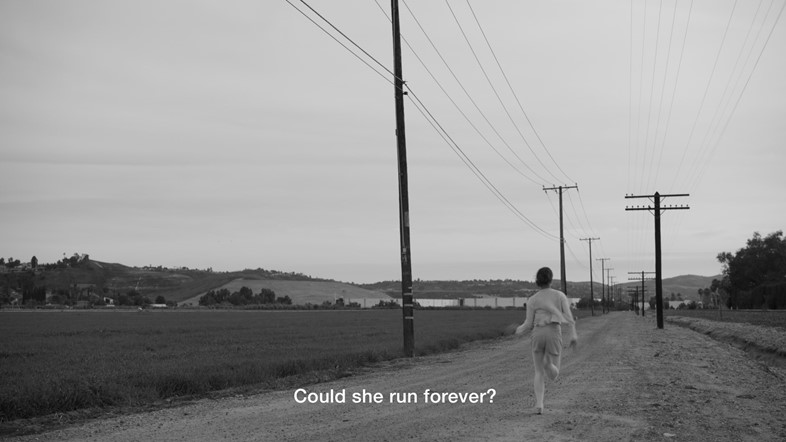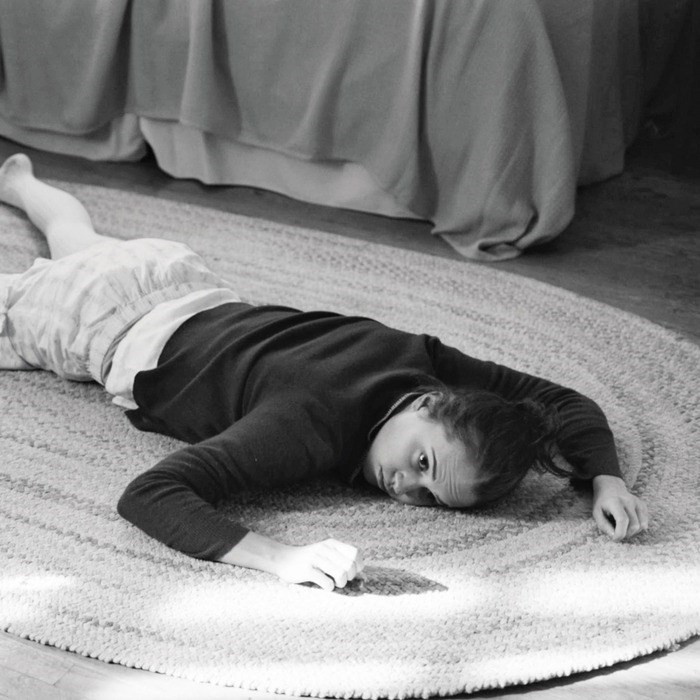In a new, almost dialogue-free film by director Mike Mills, the Swedish actress tells the story of a woman’s life from birth to death. Here, she talks to AnOther about this project and why she always feels her characters from within
“What don’t you get to do? What isn’t exploited about your talent?” director Mike Mills asked of Academy Award-winning actress Alicia Vikander when they set out on their first collaboration. “I’m a dancer,” she replied at the time. “I was famous as a ballet dancer. I work body-first and I figure out my characters through my body but I get asked to speak all the time.” The tonic then, is this new short film – a 24-minute-long feature created between Mills, Vikander and American band The National – I Am Easy To Find.
It’s not just short; it’s minimalist in its approach to what quietly builds into an epic life story, with 140 almost dialogue-free scenes which tell the story of a woman’s life from birth to death. Subtitles form a list of milestones and emotional micro-shifts that run the gamut from “Conflict” to “Suddenly aware of energy all around her” and “Finding out her mother died” – with each individual moment delivered as if part of a continuum. After reading the film’s initial text, Vikander called Mills immediately (she’d approached him at a brunch having seen his movie Beginners and loved it). “I teared up. I was like, ‘I feel weirdly exposed, like you’ve looked into my brain and pinpointed a few things that really got to me’. And it’s interesting, because I’ve seen now when other people see the film and they come out with the same reaction. People react to different frames because it’s so personal, and yet, you know, for a woman. I saw it with some girlfriends, and they were like, ‘Did you write about me in this thing?’”
This focus on the personal comes in no small part from The National’s soundtrack which plays throughout. Mills had approached the group directly after many years of listening to their music, finding a kindred approach to intimacy in their work. The band returned the appreciation having loved his film 20th Century Women and were keen to work together on something low-budget and creatively free. “Their music helps me a lot when I’m writing my films,” Mills explains. “I think it’s some combination of Matt and Aaron’s lyrics. They write from such a highly personal space that I trust. Personal lyrics can be touchy to some people, can be an opening for other people and feel real to other people – and that’s something I try to do. But it’s also a scary thing to do because you just feel like you’re up your own river and no one cares. Aaron and Bryce’s chords too. There’s something deeply kind of opioidal to me about their chords and all their music. But having them as an example literally in my ears and in my mind as I’m writing has been very helpful.”
From babyhood to old-age, Vikander’s character encounters landmark moments that somehow straddle the individual and the universal. “There are a lot of moments that are very specific and when you write them in such a short format it accidentally becomes somehow archetypal,” says Mills. Visually, the lead character doesn’t age – her costumes change but it’s through her physicality that we experience her constant growth. “It’s the dancer in her, the improvisor in her,” says Mills. “She just knew where to go and how to turn it into a body and a soul telling the story, rather than just using words.”

“I always feel my characters from within, and that comes with physicality,” Vikander says. “In one way, this was a fun opportunity for me to just play with that. And then, after playing around it was like, ‘Oh my God, I do remember what some of my friends did when I was a kid’. When I actually went for it, something felt strangely natural. Of course, I’m in this in-between age now, in my thirties. I think I can see my own childhood from some perspective and now, all of my friends are having babies and I see my parents in another light, and I understand them in another way.”
Traversing girlhood, periods, best friends, parental relationships, boyfriends, an abortion, the complexities of marriage, having a baby, adultery, sexual exploration, deaths of loved ones and concluding in her own death, it’s a triumphant tale of female experience – the kind that Mills’ 20th Century Women dealt in deftly. So does gender matter when creating a film of this kind? “I think we live in an age when things are even more fluid,” says Vikander. “Of course, I did The Danish Girl – what is female and male? They go hand in hand. They’re not separate. It’s the stereotypes of what ‘man’ and ‘woman’ has meant in our societies that have made us say that women can’t do what men can do. And actually, it’s all blending together. I think it’s a lovely time we’re in right now.”

I Am Easy To Find launched this week and can be found on YouTube here.






